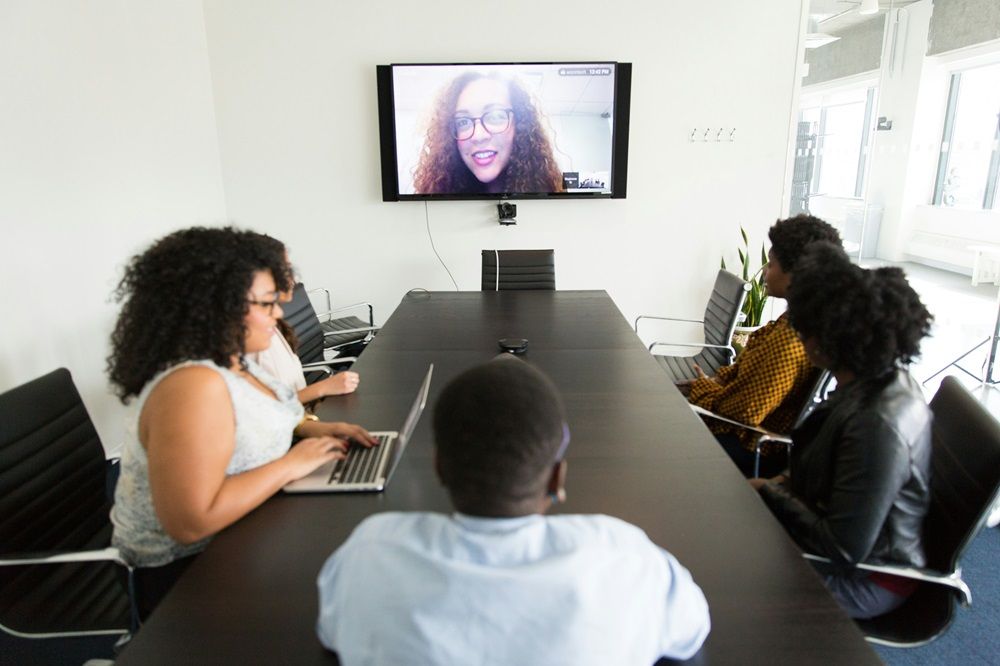Have you ever wondered why interviews come in so many forms? In the dynamic job market, understanding the different types of interviews you could be faced with can give you a significant edge. From traditional face-to-face meetings to technical assessments, each interview type has unique demands and preparation strategies. Let's explore the main options of interview styles you might encounter and how to approach them successfully. Want to stand out and score your dream job but don’t know how? Read through job hunting tips on Job Mail.
 Photo by RDNE Stock project on Pexels
Photo by RDNE Stock project on Pexels
Traditional Face-to-Face Interviews
Scenario: You’ve applied for a job as a marketing manager and the company invites you to their Johannesburg office for an interview.
Details: The traditional face-to-face interview remains one of the most common interview styles or formats. It involves a direct meeting between you and the interviewer, usually held at the company’s office. This format allows for personal interaction, enabling the interviewer to assess your body language, communication skills, and overall presence.
Preparation Tips:
- Dress professionally to make a good first impression.
- Research the company and the role thoroughly.
- Practise common interview questions to boost your confidence.
Telephone Interviews
Scenario: You’ve submitted an application for a copywriter position, and the HR manager schedules a telephone interview to discuss your qualifications.
Details: Telephone types of interviews are often used for initial screening. They save time and resources for both parties and can be a precursor to more in-depth interviews. This format tests your verbal communication skills and ability to articulate your experiences without visual cues.
Preparation Tips:
- Find a quiet place free from distractions.
- Keep your resume and a list of your achievements handy.
- Speak clearly and concisely.
 Photo by Christina @ wocintechchat.com on Unsplash
Photo by Christina @ wocintechchat.com on Unsplash
Video/Virtual Interviews
Scenario: Virtual/video interviews have seen an uptick in frequency since the COVID-19 pandemic. You are scheduled for such an interview for a software developer position and will be doing the meeting via Zoom.
Details: Video or virtual interviews have surged in popularity, especially with the rise of remote work. They can be conducted via platforms like Zoom, Microsoft Teams, or Skype. This format combines the convenience of remote interviewing with the personal touch of face-to-face interactions.
Preparation Tips:
- Ensure your tools, like a laptop or smartphone, work properly beforehand.
- Choose a professional and tidy background.
- Dress as you would for an in-person interview.
Read: 10 Common Interview Questions
Panel Interviews
Scenario: For a senior project manager position, you’re scheduled to meet a panel of interviewers, including the HR director, a senior project manager, and a potential team member.
Details: These types of interviews involve multiple interviewers questioning you simultaneously. This format can be intimidating but offers a comprehensive assessment from different perspectives within the company.
Preparation Tips:
- Address each panel member by name and make eye contact.
- Prepare to answer questions from various angles.
- Stay calm and composed under pressure.
Group Interviews
Scenario: You’re applying for a customer service representative role, and the company conducts a group interview with several candidates participating at the same time.
Details: Group interviews involve multiple candidates being interviewed simultaneously. This format tests your ability to work in a team, communicate effectively, and stand out in a group setting.
Preparation Tips:
- Be assertive but not overbearing.
- Engage with both the interviewers and other candidates.
- Highlight your teamwork and leadership skills.
Read: Interview Question: Why Are You Looking For a New Job?
Case Interviews
Scenario: For a management consulting position, you’re given a business problem to solve during the interview.
Details: Case interviews are commonly used in consulting and finance roles. They require you to solve a hypothetical business problem, demonstrating your analytical and problem-solving skills.
Preparation Tips:
- Practice with sample case studies beforehand.
- Think aloud to show your thought process.
- Structure your answers logically and clearly.
Behavioural Interviews
Scenario: You’re interviewing for a human resources position, and the interviewer asks about a time you handled conflict at work.
Details: Behavioural interviews focus on your past experiences and how they relate to the job you’re applying for. The premise is that past behaviour is the best predictor of future performance.
Preparation Tips:
- Use the STAR method (Situation, Task, Action, Result) to structure your answers.
- Reflect on relevant past experiences.
- Be honest and specific in your responses.
 Photo credit: Luca Bravo on Unsplash
Photo credit: Luca Bravo on Unsplash
Technical Interviews
Scenario: Applying for a software engineering role, you’re asked to complete a coding test and explain your solution.
Details: Technical interviews assess your specific skills and knowledge related to the job. For technical roles, this could involve coding tests, problem-solving tasks, or technical questions.
Preparation Tips:
- Brush up on key concepts and skills relevant to the role.
- Practice solving problems under timed conditions.
- Be prepared to explain your thought process and solutions in detail.
Understanding the different types of interviews is crucial for navigating the job market. Whether you're facing a traditional face-to-face interview or a complex technical assessment, each format requires specific preparation strategies. By familiarising yourself with these interview styles and their demands, you can approach each opportunity with confidence and poise, enhancing your chances of success. Want to land the job of your dreams but are unsure how to do it? Visit the Job Mail blog for loads of articles on job hunting and preparing yourself for the job market.
Read Related Articles
- The Art of Effective Interview Follow-Up Strategies
- 10 Most Common Business Analyst Interview Questions and Answers
- The Role of Active Listening During an Interview
- How to Prepare for a Receptionist Job Interview: Key Tips for Success
- Preparing for Electrical Engineering Job Interviews
- How to Prepare for a Web Development Job Interview
- How to Excel in Marketing Job Interviews in South Africa


